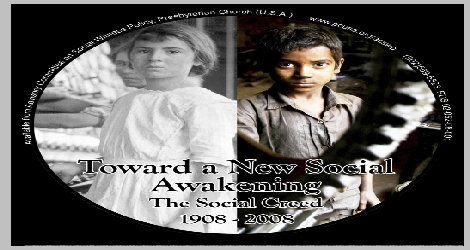[wpcol_1half id=”” class=”” style=””]
Are Compassionate Capitalism and Charity Enough?
The response of many economists, business leaders, and religious people is that these problems can be solved by nurturing greater compassion in the marketplace and by more effectively utilizing the work of charitable organizations. But is compassionate capitalism coupled with charity enough to address the issues people in poverty are facing?
Business leaders and economists advocating for a more compassionate capitalism think that, as a philosophy and system, capitalism is not inherently bad. They point to the tremendous economic growth that a free market has created. Economist Deidre McClosky argues in her book Bourgeois Virtues that by appealing to and nurturing compassion within individuals capitalism as a system can and actually is improving its moral record. Business leaders should be more virtuous and treat workers with fairness. What we must do is fully embrace capitalism so that jobs will be created and the market itself will establish fair prices and fair wages. McClosky, however, does not seem to take into account the fact that CEO’s and other leaders cannot exercise compassion without losing their own share in the market. Can we simply rely on the good nature of individuals to be more benevolent in their treatment of workers? Don’t we need more governmental regulation as well as individual transformation?
There are so many people who fall through the market’s cracks. Charity has been seen as another way of responding to the needs of people living in poverty. There is no doubt that charitable organizations have done good and important work to address the needs of many of the working poor. Charity, however, does not transform systems that cause workers to live in poverty. Charitable programs are designed to address crisis situations. The majority of social ministries focus on programs that alleviate the economic stress placed upon many families by providing emergency assistance but fail to pay attention to the systemic causes of people’s poverty. The Immokalee workers provide a good example.
Primarily Latino, Haitian and Mayan farmworkers, the Immokalee workers pick tomatoes in Florida that are later supplied to Yum! Brands, the corporation that owns Kentucky Fried Chicken, Taco Bell, Long John Silvers, and Pizza Hut. Although the farmworkers worked full-time they were not paid enough to support themselves. Many relied on charitable organizations when money fell short. Noelle Damico, United Church of Christ pastor and Director for the Campaign for Fair Food for the Presbyterian Church (USA), has observed that charity relieved the strain in crisis situations, but had the effect of subsidizing the businesses that were unwilling to pay workers adequately for their work. Giving financial aid to businesses is a form of corporate welfare that enables businesses to earn profits from lower labor costs but leaves workers vulnerable. Fortunately, the Immokalee workers led a successful boycott of Yum! Brands that was supported by a variety of churches and the wider public. Yum! committed itself to paying just a penny more per pound for tomatoes and the worker’s wages increased significantly.
[/wpcol_1half] [wpcol_1half_end id=”” class=”” style=””]
The living conditions of poor people and the economic disparities that we see along the lines of race and gender are causes for moral outrage. A more compassionate capitalism coupled with the charitable work of religious organizations may help but will not adequately attend to the problems before us. Neither compassionate capitalism nor charitable programs adequately address the systemic nature of these problems. Our economic policies and practices must be changed so that people who work are valued and the needs of individuals and their families along with the larger community are kept in mind.
Do you remember the parable of the workers in the vineyard found in the Gospel of Matthew? In the parable, Jesus compares the kingdom of heaven to a landowner who goes out to hire workers for his vineyard. The landowner goes to the marketplace five different times during the day from early in the morning to late in the afternoon. On each trip to the market he finds workers and sends them to work in his fields. With the first group of workers the landowner agrees to pay them “whatever is right.” Late in the afternoon, the landowner expresses concern that there are still workers in the market who have been unable to find a good day’s work. Even at such a late hour he sends them to his fields to work. At the end of the day the workers gather for their pay and the landowner pays them all equally. Of course the workers grumble. Some had labored in the fields from early in the morning. The landowner replies,
Friend, I am doing you no wrong; did you not agree with me for the usual daily wage? Take what belongs to you and go; I choose to give to the last the same as I give to you. Am I not allowed to do what I choose with what belongs to me? Or are you envious because I am generous? (Matthew 20:13-16).
This story offers us great challenge because it flies in the face of the competitive spirit we have been conditioned to accept. Jesus’ parable invites us to consider the idea that the greatest value should be placed upon the people who work above values for work determined by the marketplace.
[/wpcol_1half_end]





Unbound Social